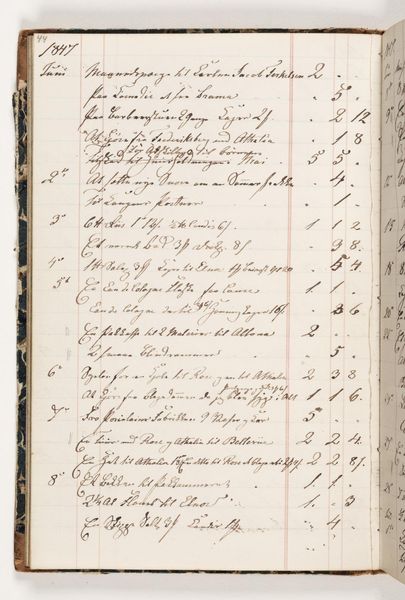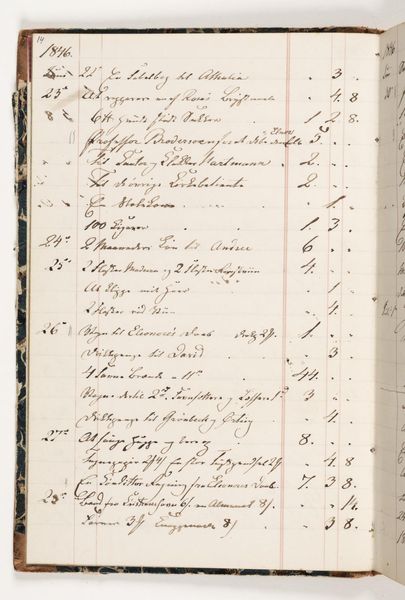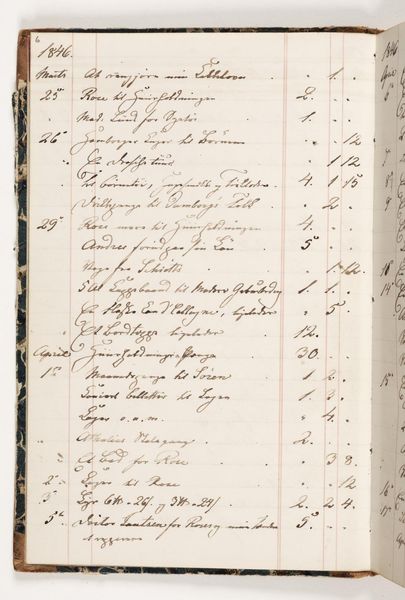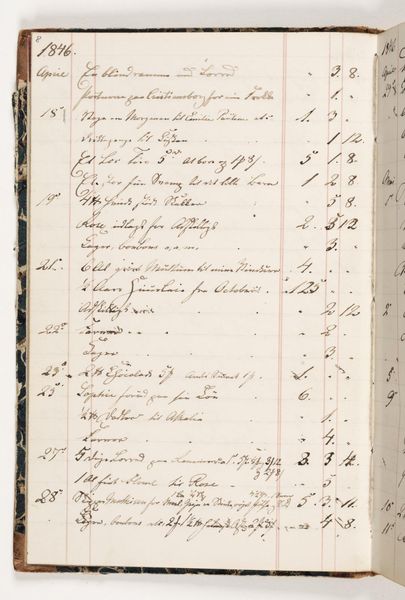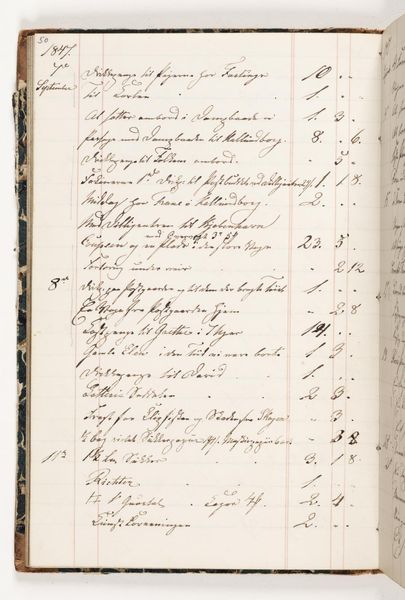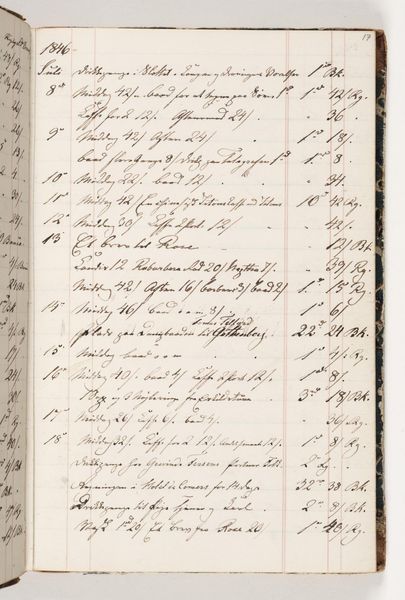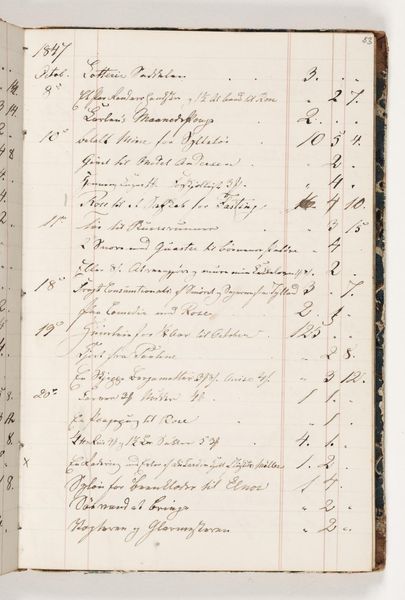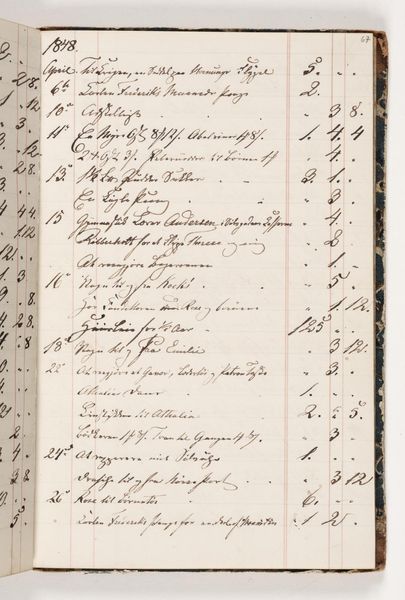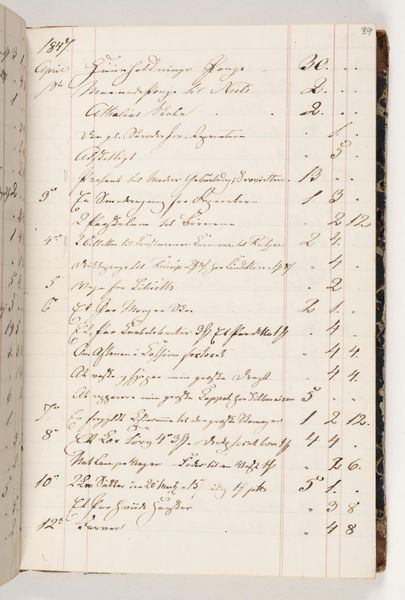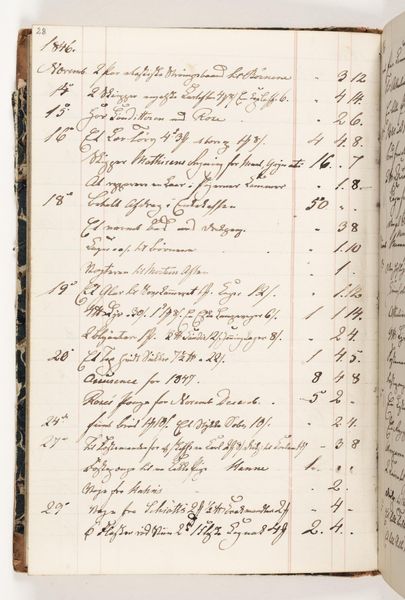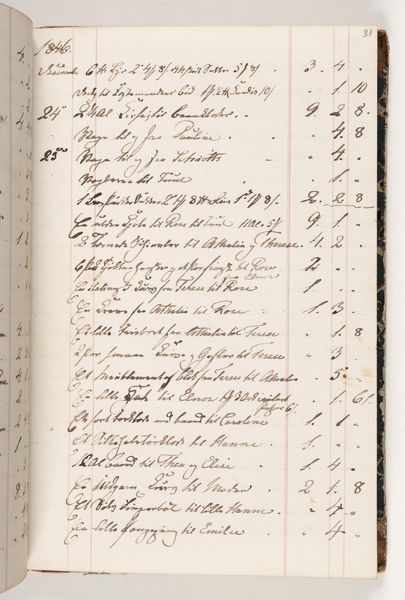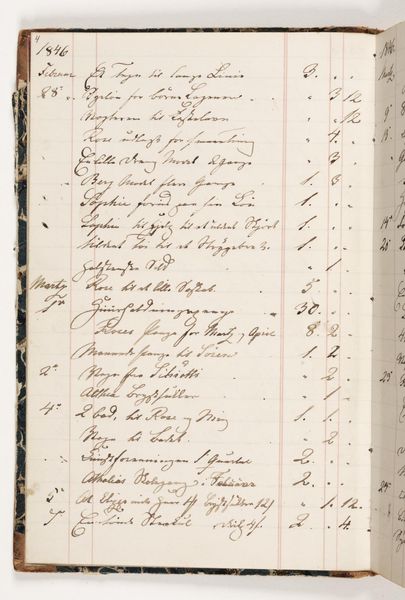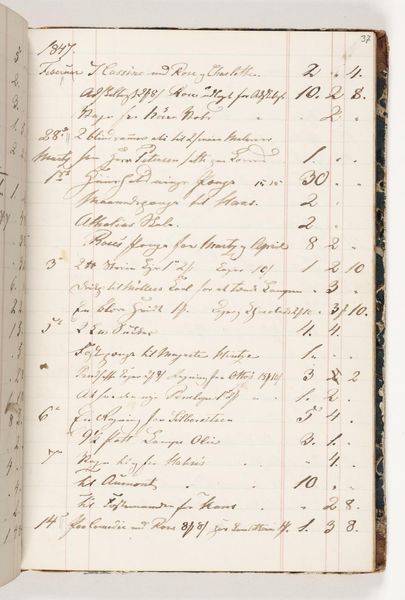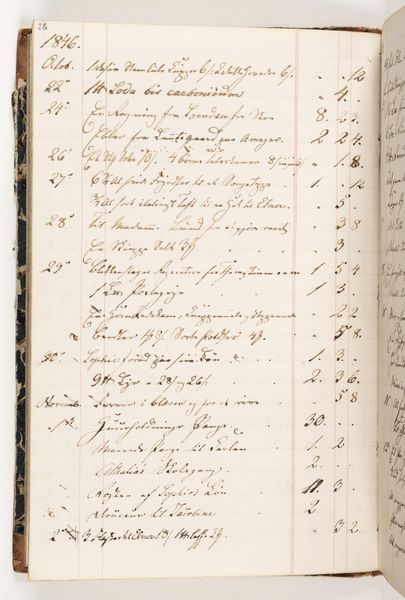
drawing, paper, ink
#
drawing
#
paper
#
ink
#
academic-art
#
realism
Dimensions: 200 mm (height) x 130 mm (width) (bladmaal)
Martinus Rørbye created this page from an account book in 1846, using ink on paper. Everyday materials for the time, no doubt, yet the artist’s choice to inscribe a ledger page elevates it. Consider the labour involved: paper manufactured from rags, the ink mixed to a precise consistency, the script painstakingly applied with a quill. Rørbye engaged directly with these processes, and the inherent qualities of the materials influenced his work. The thinness of the paper allows the script on the other side to be seen, while the ink’s dark hue contrasts with the page. These are not traditional art materials, yet they are imbued with social significance. Accounting books were instruments of an emergent capitalist system. By appropriating this medium, Rørbye asks us to consider where the life of art and commerce meet. Ultimately, the significance of this artwork lies not only in its content, but also in the context and means of its production. It challenges traditional notions of art and craft, asking us to consider the labor and social implications embedded within everyday materials.
Comments
No comments
Be the first to comment and join the conversation on the ultimate creative platform.
